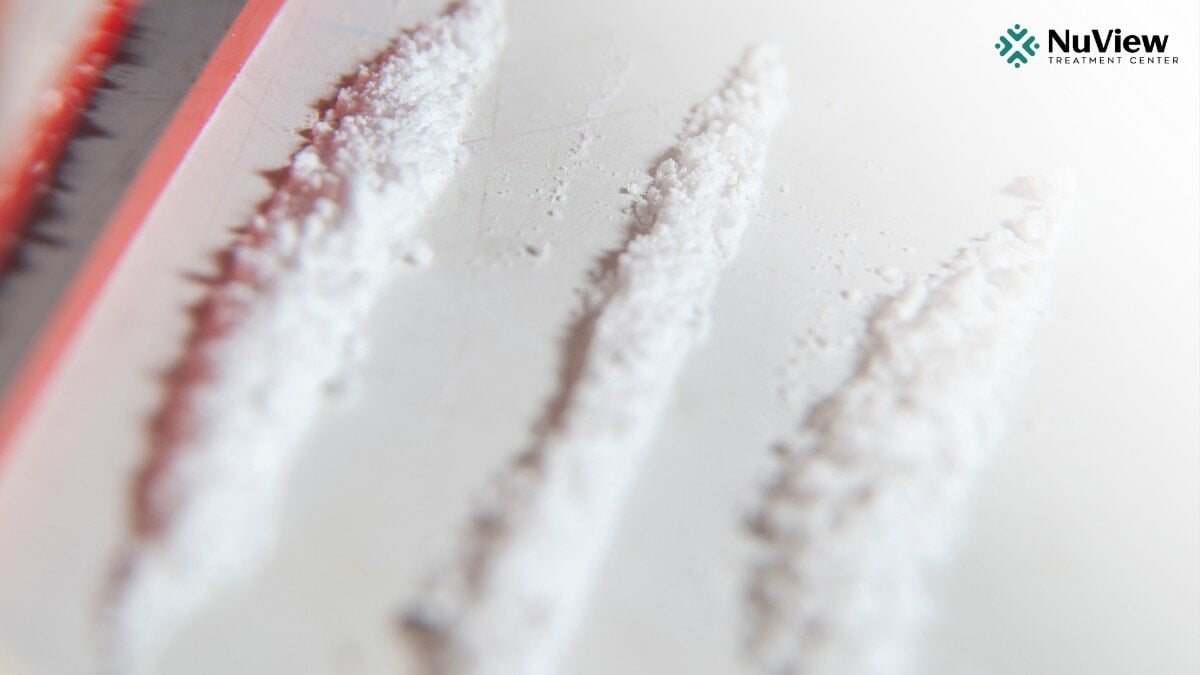Crack cocaine, often just called 'crack,' is an extremely addictive stimulant that comes from cocaine. It has a very strong, short-lived high, albeit it can leave lasting damage on the brain. As crack is typically smoked, its effects kick in a lot faster, and different factors play a role in determining how long does crack stay in your system.
Depending on how much crack is used, it can stay in your body for up to 12 hours. However, some drug tests can detect it for even longer.
What Is the Half-Life of Crack Cocaine?
Crack cocaine is typically smoked, so it gets rapidly absorbed by the lungs, delivering a quick, intense high that fades fast. This lasts for about 10 minutes, but during this time, crack effects peak. The half-life of crack cocaine is also very short - just 15 minutes, which means it takes 15 minutes for the levels of the drug in your blood to drop by 50%. It takes several half-lives before crack is entirely eliminated from your body, anywhere between 2 and 12 hours, depending on factors like dosage, frequency, and metabolism.
Get Started With Nuview Treatment Center
Our dedicated professional staff is here to guide you or your loved one on the journey to lasting recovery, offering support every step of the way.
How Long Does Crack Stay in Your System?
How Long Does Crack Stay in Urine?
Typically, crack can be detected in your urine for 1-4 days after the last use. However, depending on other factors, this window can extend up to a week.
How Long Does Crack Stay in Your Hair?
Hair tests can detect crack for up to 90 days, the longest detection window among all tests. However, hair tests are not commonly used as they are complicated and expensive; they are used in cases where a history of crack use needs to be established.
How Long Does Crack Stay in Your Saliva?
Saliva tests can detect crack cocaine for a rather short period of time; typically up to 24 hours after use. As saliva tests are easy to administer and least invasive, they are mainly used in settings where immediate detection of the drug is required.
How Long Does Crack Cocaine Stay in Your Blood?
Cracks are present in the blood for only a relatively short time as well, from 2 to 12 hours after the last use. Blood tests are not as common as urine tests; they are mainly used for immediate detection purposes.
Test Type | Detection Window |
Urine | 1 to 4 days |
Hair | Up to 90 days |
Saliva | Up to 24 hours |
Blood | Variable; 2 to 12 hours |
What Factors Impact How Long Does Crack Stay In Your System?
Several factors play a role in determining how long crack stays in your system, thereby impacting its detection window:
Dosage and Frequency - Higher doses and frequent use of crack mean that it will take longer for your body to eliminate it from your system.
Metabolism - As metabolism plays a central role in determining how quickly crack gets broken down and eliminated, better metabolism rates lead to quicker elimination. Therefore, maintain a certain level of physical activity and keep your body hydrated at all times.
Liver Functioning - The liver is the organ responsible for metabolizing crack cocaine, so optimal liver functioning leads to quicker elimination. On the other hand, pre-existing liver conditions can slow down the elimination rate.
Food Intake - If crack is taken immediately before or after food, the food intake can slow the rate at which crack is broken down by the body.
Get Started With Nuview Treatment Center
How to Get Crack Out of Your System?
There is no quick fix to get crack out of your system immediately. The body will eliminate it over a period of time, which depends on metabolism and other factors. Therefore, maintaining a proper diet, good hydration, and physical exercise is crucial.
Remember that crack is a very addictive substance that can lead to lasting damage to your brain, body, and life. Therefore, avoiding crack use altogether is good for your mind, body, and overall quality of life. However, if you are struggling with crack use, getting over it all on your own is not always the best, and you do not need to do it all by yourself either. You can consult licensed and trained mental health practitioners who can equip you with the tools and skills you need to overcome crack use and keep your mind and body hale and hearty.
What Are the Treatment Options for Crack Abuse?
Crack is one of the most addictive drugs, causing severe and long-lasting health damage. As it produces a high or rush of pleasurable sensations and feelings, it is common for people to keep using it over and over again. Over a period of time, crack use can increase the risk of psychosis, seizures, and heart conditions, and can even lead to life-threatening conditions like overdose. However, crack abuse can be treated effectively, and a life free from the grip of its lasting damage is possible.
Crack abuse can be treated in outpatient settings with partial hospitalization programs or intensive outpatient programs, depending on the duration and severity of substance abuse. It is treated with behavioral therapies like motivational interviewing, cognitive behavioral therapy, contingency management, and 12-step recovery programs. Furthermore, ongoing care and support in the form of informal peer groups like Narcotics Anonymous (NA) are also very effective in ensuring lasting recovery and preventing relapse.
However, for more severe cases of crack abuse, medically supervised detoxification (detox) and residential rehabilitation (rehab) can be required.
Ready to break free from crack use?
NuView offers compassionate, evidence-based treatment to enable you to reclaim your life. Reach out to us at (323) 307-7997 or email us at info@nuviewtreatment.com today.
Frequently Asked Questions (FAQs)
What is crack cocaine?
Crack cocaine, or crack, is derived from cocaine; it is available as rock crystals and is typically smoked.
How long does it take for crack cocaine to take effect?
As crack is typically smoked, it is quickly absorbed by the lungs, and its effects kick in within 10-15 seconds. It gives rise to a short-lived high.
What are the peak levels of crack cocaine?
Crack cocaine reaches its peak within 15 minutes. At this time, it is at its most effective in producing a dopamine rush or high.
How is crack metabolized in the body?
Crack is metabolized by the enzymes present in the liver and blood. Mainly, its metabolites can be detected by several drug tests.
What are the types of crack testing?
- Urine Test: The most commonly used test to detect crack cocaine use.
- Hair Test: Hair tests are not as common as urine tests, but they have the longest detection window.
- Saliva Test: Least invasive, but is mostly used for immediate detection purposes.
- Blood Test: Slightly more invasive than others, it is also used for immediate detection purposes.
- What Is the Half-Life of Crack Cocaine?
- How Long Does Crack Stay in Your System?
- What Factors Impact How Long Does Crack Stay In Your System?
- How to Get Crack Out of Your System?
- What Are the Treatment Options for Crack Abuse?
- Frequently Asked Questions (FAQs)
- What Is the Half-Life of Crack Cocaine?
- How Long Does Crack Stay in Your System?
- What Factors Impact How Long Does Crack Stay In Your System?
- How to Get Crack Out of Your System?
- What Are the Treatment Options for Crack Abuse?
- Frequently Asked Questions (FAQs)
Get Help Today!
Everyone is Welcome Here and We All Have Your Back
Your healing journey deserves a personalized approach. At NuView, we integrate expertise in behavioral therapy, mental health, and substance use treatment to create a customized recovery plan tailored to your unique needs.
Connect with our Admissions Specialists today.







Written By
Dr. Ryan Peterson